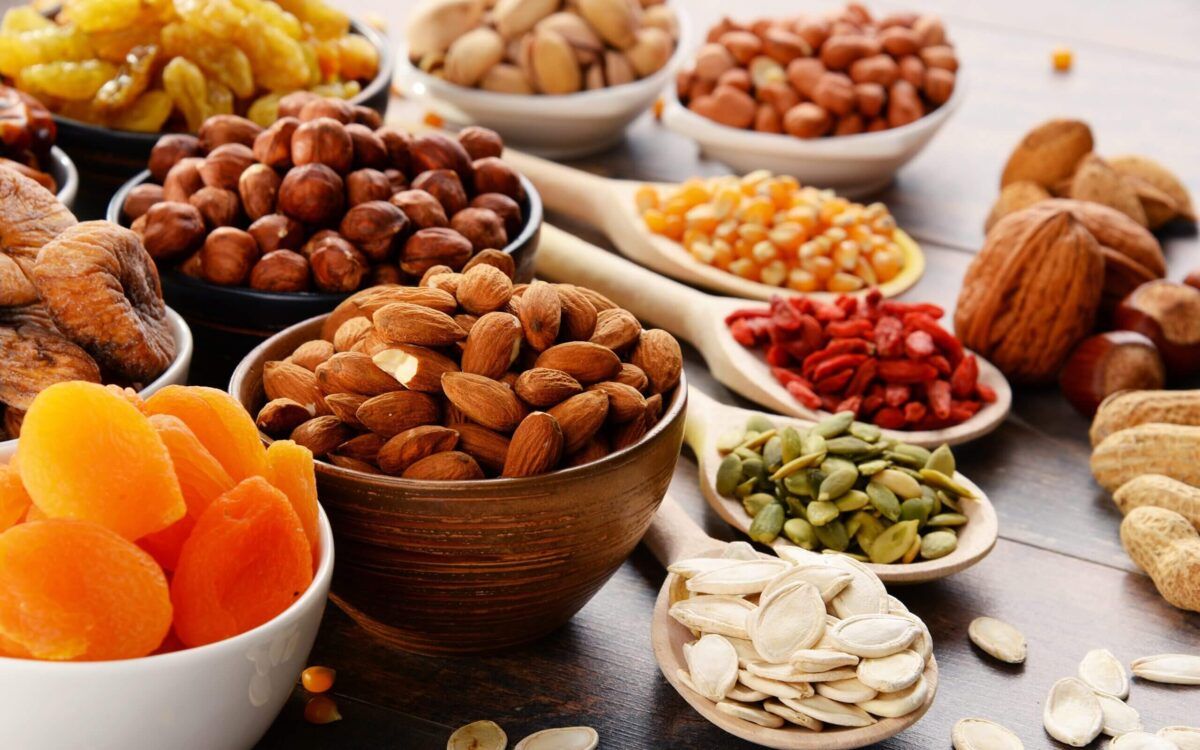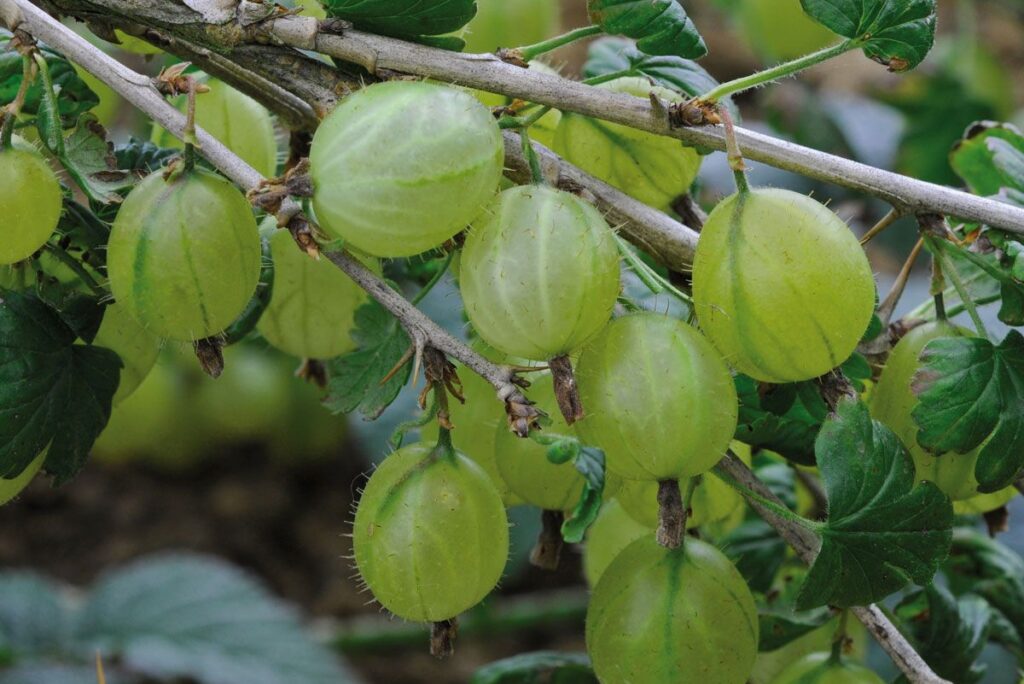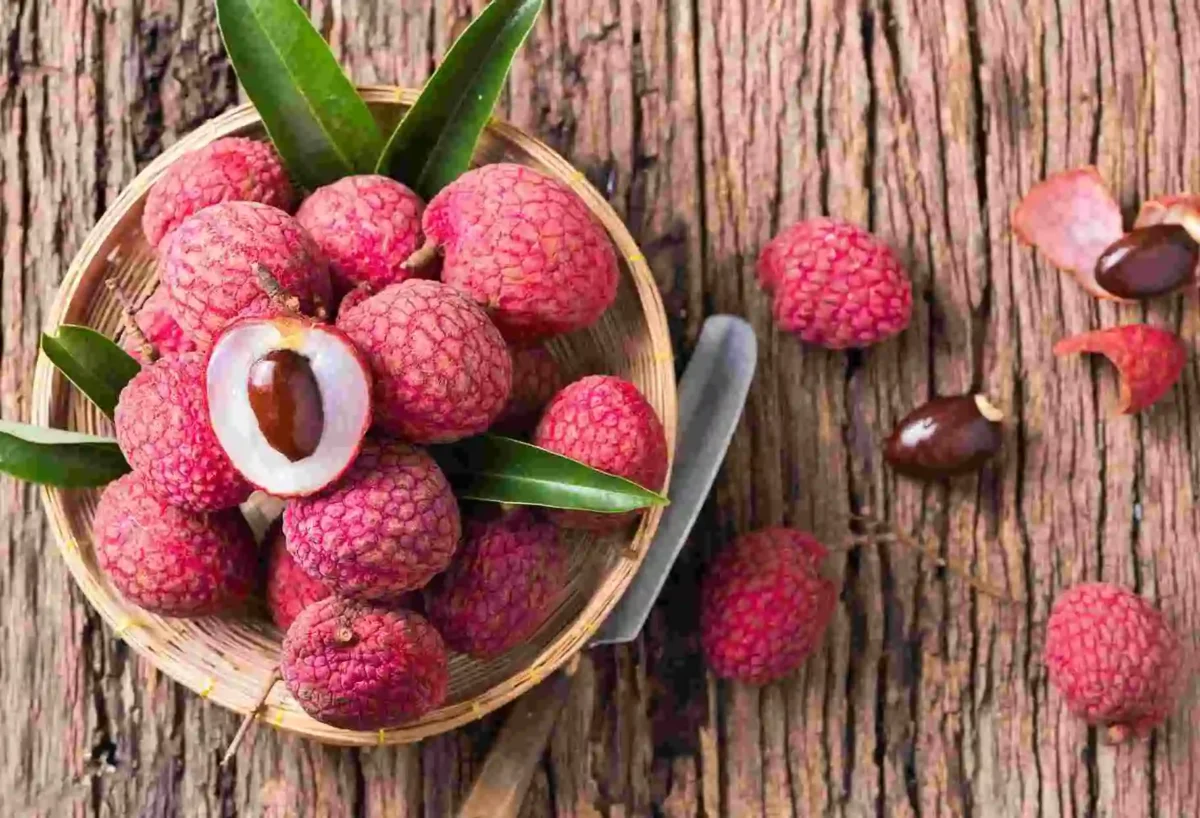What is an Apricot?

Apricots are a type of fruit belonging to the Prunus family, including cherries, plums, and peaches. They are native to Armenia and have been cultivated for thousands of years. Apricots are small and round, with smooth, velvety skin that ranges in color from yellow to orange. The flesh of the fruit is soft and juicy, and it has a slightly sweet and tangy flavor. Apricots are usually eaten fresh, but they can also be dried, canned, or made into jam or juice. They are a popular ingredient in many dishes, including baked goods, salads, and savory main courses. In addition to being delicious, apricots are a nutritious fruit that is high in fiber, vitamins, and minerals.
Table of Contents
Apricots are delicious and nutritious fruit that has been enjoyed for centuries. They are a good source of vitamins and minerals, including vitamin C, potassium, and beta-carotene. In this blog post, we will explore the numerous health benefits of apricots as well as any potential side effects to consider. From their antioxidant and anti-inflammatory properties to their potential to improve heart health and aid in digestion, apricots offer a wide range of health benefits. However, it’s also important to be aware of any potential side effects and to speak with a healthcare professional before making significant changes to your diet.
Apricot benefits:
Apricots are a nutritious and delicious fruit that offer numerous health benefits. Here are four reasons to add apricots to your diet:

- High in antioxidants and vitamin C: Apricots are a good source of antioxidants, which are substances that can protect your cells from damage caused by free radicals. Free radicals are unstable molecules that can harm your body’s cells and contribute to the development of chronic diseases such as cancer and heart disease. Apricots are also high in vitamin C, which is a water-soluble vitamin that helps to boost the immune system and protect against infection.
- May help with digestion and weight loss: Apricots are high in fiber, which is a type of carbohydrate that is important for maintaining a healthy digestive system. Fiber helps to bulk up the stools and move them through the intestines, which can prevent constipation and other digestive issues. In addition, fiber can help you feel full and satisfied after eating, which can aid in weight loss.
- May improve heart health and lower blood pressure: Apricots are a good source of potassium, which is a mineral that is essential for maintaining healthy blood pressure. Potassium helps to balance the effects of sodium in the body, and high levels of potassium have been linked to a reduced risk of heart disease. In addition, apricots contain antioxidants that may help to protect against heart disease by preventing the build-up of plaque in the arteries.
- May have anti-inflammatory effects: Apricots contain antioxidants that may have anti-inflammatory effects on the body. Inflammation is a normal immune response that occurs when the body is trying to heal itself or protect itself from harm. However, chronic inflammation can contribute to the development of chronic diseases such as heart disease, cancer, and diabetes. By reducing inflammation, apricots may help to lower the risk of these diseases.
In conclusion, apricots are a nutritious and tasty fruit that offer a wide range of health benefits. From their high levels of antioxidants and vitamin C to their potential to improve heart health and aid in digestion, apricots are a great addition to any diet.
Apricot benefits for skin:
Apricots are high in antioxidants, which may help to protect the skin from damage caused by free radicals. Free radicals are unstable molecules that can harm the skin’s cells and contribute to the signs of aging, such as wrinkles and sagging. In addition, apricot benefits in vitamin C, which is important for collagen synthesis and may help to improve the texture and appearance of the skin. Some people also use apricots or apricot oil topically to moisturize and nourish the skin. However, it is important to speak with a healthcare professional before using apricots or apricot oil on the skin, as they may cause allergic reactions in some individuals.
Apricot oil benefits:

Apricot oil is a type of oil that is extracted from the seeds of apricots. It is a light, non-greasy oil that is easily absorbed by the skin and is suitable for all skin types. Apricot oil is high in vitamin E, which is an antioxidant that helps to protect the skin from damage caused by free radicals. It is also rich in linoleic acid, which is an essential fatty acid that helps to nourish and moisturize the skin. Some people use apricot oil to:
- Moisturize and nourish the skin
- Reduce the appearance of fine lines and wrinkles
- Soothe inflammation and irritation
- Treat dry, flaky skin
- Protect the skin from sun damage
It is important to speak with a healthcare professional before using apricot oil on the skin, as it may cause allergic reactions in some individuals. In addition, apricot oil should not be used as a replacement for sunscreen and should not be used on open wounds.
Also Read: Healthy Sunflower Seeds: Types, Usages & Health Benefits
Apricot benefits in pregnancy:

Apricots are a nutritious and tasty fruit that can be enjoyed during pregnancy. They are high in fiber, which can help with digestion and prevent constipation, a common pregnancy complaint. Apricot benefits are high in vitamin A, which is important for fetal development and the maintenance of healthy skin, teeth, and mucous membranes. In addition, apricots are a good source of vitamin C, which helps to boost the immune system and protect against infection. However, it is important to speak with a healthcare professional before making significant changes to your diet during pregnancy and to ensure that you are getting all of the nutrients you need.
Nutritional value of apricots:
Apricots are nutritious and tasty fruit that is high in fiber, vitamins, and minerals. One medium-sized apricot (about 2 inches in diameter) contains the following nutrients:
- 15 calories
- 0.5 grams of protein
- 0.5 grams of fat
- 3.5 grams of carbohydrates
- 1.5 grams of fiber
- 6% of the daily value (DV) for vitamin C
- 4% of the DV for potassium
- 2% of the DV for iron
Apricots are also a good source of beta-carotene, a plant pigment that the body converts into vitamin A. Vitamin A is important for maintaining healthy skin, teeth, and mucous membranes, and it is also essential for proper fetal development during pregnancy. In addition, apricots are a good source of antioxidants, which are substances that can protect the body’s cells from damage caused by free radicals.
Also Read: 7 Extraordinary Benefits of Cashew Nuts: From Heart Well-being to Stunning Hair
Apricot side effects:
While apricots are generally considered to be a healthy and nutritious fruit, apart from apricot benefits there are a few potential side effects to consider. Here are three things to keep in mind when consuming apricots:
- May cause allergic reactions in some individuals: Some people may be allergic to apricots or other fruits in the Prunus family, such as cherries, plums, and peaches. Symptoms of a fruit allergy can include hives, rash, swelling, difficulty breathing, and anaphylaxis (a severe allergic reaction that can be life-threatening). If you have a known fruit allergy or have experienced allergic reactions to other fruits, it is important to speak with a healthcare professional before consuming apricots.
- Can interact with certain medications: Apricots contain small amounts of salicylates, which are substances that can interact with certain medications. Salicylates can interfere with the absorption and effectiveness of certain medications, including blood thinners, nonsteroidal anti-inflammatory drugs (NSAIDs), and anticoagulants. If you are taking any of these medications, it is important to speak with a healthcare professional before consuming large amounts of apricots.
- Large amounts may have a laxative effect: Apricots are high in fiber, which is a type of carbohydrate that is important for maintaining a healthy digestive system. However, consuming large amounts of fiber (particularly if you are not used to it) can cause digestive issues such as bloating, gas, and diarrhea. To avoid these side effects, it is important to gradually increase your fiber intake and drink plenty of water.
In conclusion, while apricots are generally considered to be a healthy and nutritious fruit, it is important to be aware of any potential side effects and to speak with a healthcare professional before making significant changes to your diet.
How to incorporate apricots into your diet:
Apricots are a delicious and nutritious fruit that can be incorporated into your diet in many ways. Here are some ideas for recipes featuring apricots and tips for selecting and storing them:
- Recipe ideas:
- Apricot smoothie: Blend together a handful of fresh or frozen apricots with a banana, a cup of milk or yogurt, and a handful of ice. You can also add a spoonful of honey or a sprinkle of cinnamon for extra flavor.
- Grilled apricots with honey and goat cheese: Halve and pit a few fresh apricots and brush them with a little olive oil. Grill them over medium heat for a few minutes on each side, until they are tender and slightly caramelized. Top with a spoonful of honey and a small piece of goat cheese.
- Apricot oat bars: Mix together equal parts rolled oats and chopped apricots with a little honey, butter, and cinnamon. Press the mixture into a square pan and bake until the oats are toasted and the apricots are soft. Cut into squares and serve.
- Tips for selecting and storing apricots:
- When selecting apricots, look for fruit that is firm and plump, with smooth skin and rich, orange color. Avoid fruit that is bruised or shriveled.
- To store apricots, place them in a plastic bag and keep them in the refrigerator for up to a week. You can also store ripe apricots in the freezer for later use.
- If you have a lot of ripe apricots that you need to use up quickly, you can also dry them or make them into jam or compote.
In conclusion, apricots are a nutritious and delicious fruit that offer numerous health benefits. They are high in antioxidants and vitamin C and may help with digestion, weight loss, and heart health. Apricots may also have anti-inflammatory effects and can be incorporated into your diet in many ways. However, it is important to be aware of any potential side effects and to speak with a healthcare professional before making significant changes to your diet. We encourage you to try incorporating apricots into your diet and potentially experience the health benefits for yourself. As always, it is important to speak with a healthcare professional before making significant changes to your diet or taking supplements.
Also Read: Dry Figs: God gifted Super natural fruit, It’s healthy benefits & Uses
FAQ:
Are apricots good for you?
Apricots are generally considered to be a healthy and nutritious fruit. They are high in antioxidants, vitamin C, and fiber, and may offer a number of health benefits. For example, apricots may help with digestion, weight loss, and heart health, and may have anti-inflammatory effects. However, it is important to be aware of any potential side effects and to speak with a healthcare professional before making significant changes to your diet.
What is an apricot called in India?
Apricots are called “khoobani” in Hindi, which is one of the official languages of India. They are also known as “mamidi” in Telugu, “buddakai” in Kannada, “khubani” in Urdu, and “khubani” in Punjabi. Apricots are grown in several parts of India, particularly in the northern states of Jammu and Kashmir, Himachal Pradesh, and Uttarakhand. They are also grown in the western state of Gujarat and the southern states of Andhra Pradesh and Tamil Nadu. Apricots are a popular fruit in India and are often eaten fresh or dried, and are also used to make jams, compotes, and other dishes.
Is an apricot a peach?
No, apricot is not a peach. However, both apricots and peaches belong to the Prunus family, which also includes cherries, plums, and almonds. Apricots and peaches are similar in appearance, as they are both small, round fruits with smooth, velvety skin. However, there are a few key differences between the two fruits:
Color: Apricots are typically a pale orange color, while peaches are typically a deeper shade of orange or yellow.
Flavor: Apricots have a slightly sweet and tangy flavor, while peaches are sweeter and more floral.
Texture: Apricots are usually firmer and less juicy than peaches.
Seasonality: Apricots are typically in season in the late spring and early summer, while peaches are in season in the summer and early fall.
Nutritional value: While both apricots and peaches are high in antioxidants and vitamin C, they differ in their vitamin and mineral content. Apricots are a good source of beta-carotene, while peaches are high in vitamin A and potassium.
How many apricots should I eat a day?
It is generally recommended to consume about two servings of fruit per day. A serving of fruit is about 1 cup or the size of a small-medium piece of fruit such as an apple or an apricot. You can adjust the number of apricots you consume per day based on your personal health goals and dietary needs. It is important to make sure that you are getting a variety of nutrients from a variety of sources and to speak with a healthcare professional if you have any concerns.
What is the best time to eat apricot?
Apricots are generally considered to be at their best when they are ripe, which is typically in the late spring or early summer. Ripe apricots are soft and juicy and have a rich, sweet flavor. However, apricots can also be enjoyed when they are not quite ripe, as they will continue to ripen at room temperature. If you prefer firmer fruit, you can refrigerate apricots to slow down the ripening process.
Apricots can be eaten at any time of day, but they are often enjoyed as a snack or dessert. They can be eaten fresh, or they can be incorporated into a variety of dishes, such as smoothies, salads, and baked goods. Dried apricots are also a popular snack, and can be enjoyed on their own or added to trail mix, oatmeal, or yogurt.

Rupesh Sagvekar is Content writer, Food blogger and owner of Manvik Foods, an online shop in Mumbai, India that specializes in selling high-quality dry fruits, nuts, berries, whole and powdered spices. Under the authority of Manvik Enterprises Organisation, Rupesh and his team believe that quality is of the utmost importance. They take great care to ensure that their products are verified, tested, and of the best possible quality. Rupesh’s goal is to make sure that every customer is satisfied with what they receive from Manvik Foods.
As an Amazon affiliate, Manvik Foods ships their products all over India, allowing customers from all corners of the country to enjoy their delicious and nutritious products. With Rupesh at the helm, Manvik Foods has become known for their commitment to quality, exceptional customer service, and passion for healthy, natural foods.








